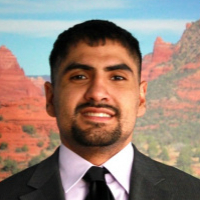Fairacres White Collar Crime Lawyer, New Mexico
Sponsored Law Firm
-
 x
x

Click For More Info:
-
The Law Offices of Richard L. Cooper, P.A.
848 Brickell Avenue Suite 800 Miami, FL 33131» view mapDWI/DUI, Drug Trafficking, Felony Nationally Ranked Top 40 Under 40
With Richard L. Cooper you can expect a trusted confidant who will work diligently to fully understand your case and determine a road map to help you regain control of your life.
800-756-2781
Not enough matches for Fairacres White Collar Crime lawyer.
Below are all Fairacres Criminal lawyers.
Ramon Hernandez
✓ VERIFIEDGeneral Practice
Attorney Hernandez is a practicing lawyer in the state of New Mexico.
Samantha Madrid
✓ VERIFIEDAccident & Injury, Divorce & Family Law, Criminal
Samantha Madrid is a practicing lawyer in the state of New Mexico.
Jeffrey C. Lahann
Criminal, DUI-DWI, White Collar Crime, Civil & Human Rights, Felony
Status: In Good Standing Licensed: 33 Years
FREE CONSULTATION
CONTACTMaria Y Armijo
Criminal, Car Accident, Science, Technology & Internet, White Collar Crime
Status: In Good Standing Licensed: 33 Years
Michael L Stout
White Collar Crime, Criminal, Civil Rights, Personal Injury, Medical Malpractice
Status: In Good Standing

 Richard L. Cooper Miami, FL
Richard L. Cooper Miami, FL AboutMiami Attorney at Law
AboutMiami Attorney at Law ServicesCriminal Defense
ServicesCriminal Defense


